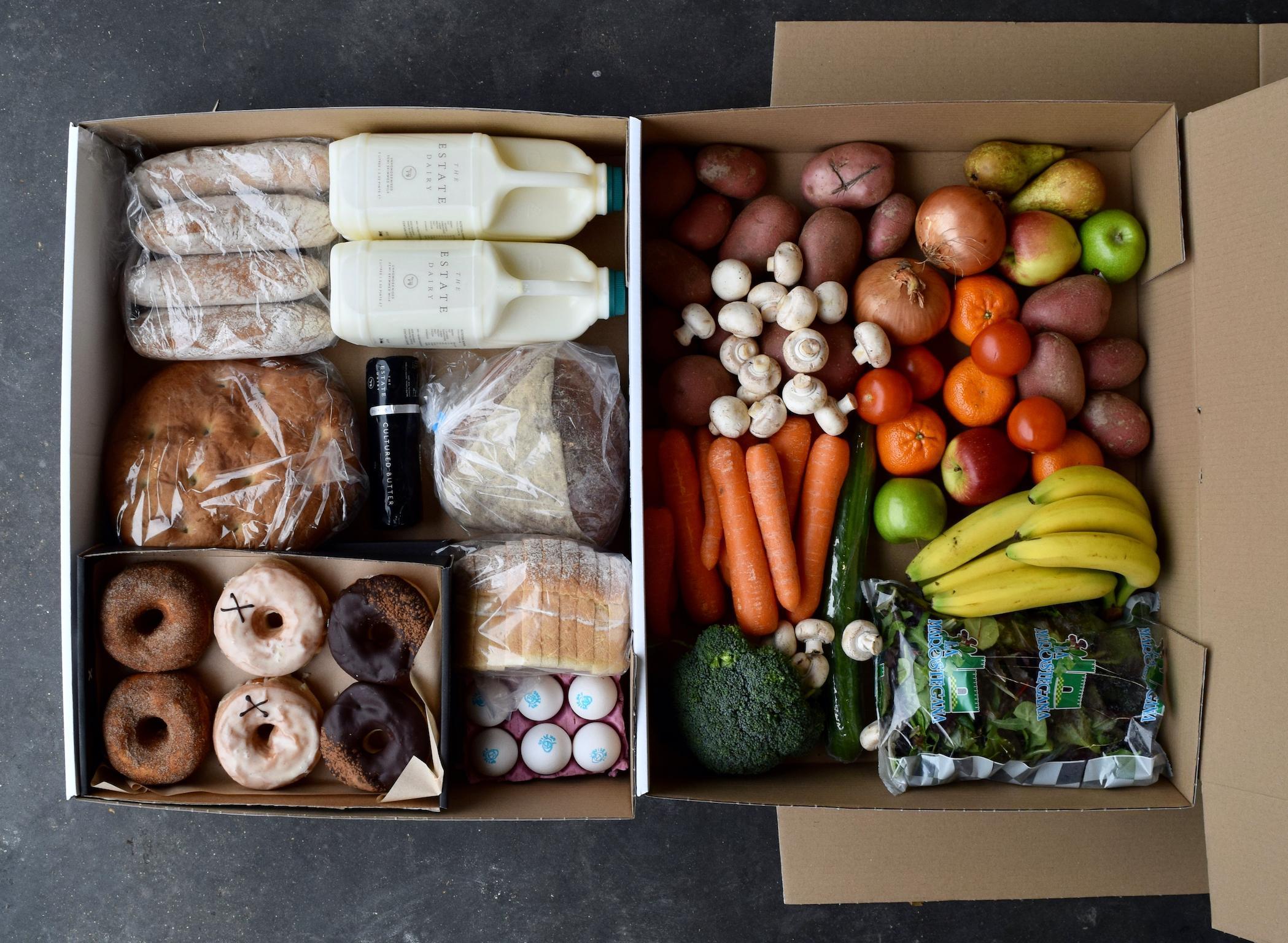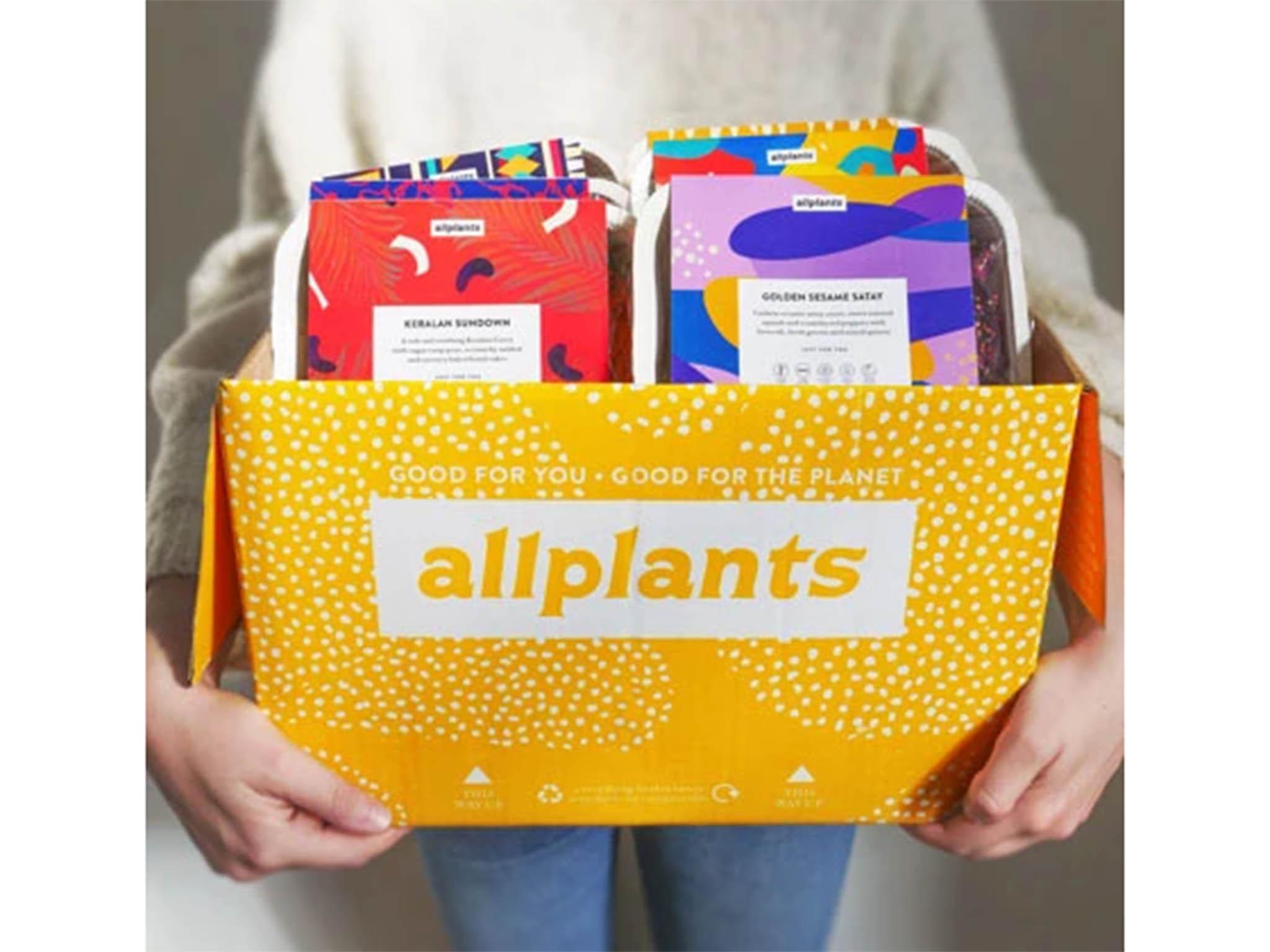‘We want to keep the UK fed in this moment of crisis’: The start-ups fighting back against coronavirus
Since the onset of the pandemic, online ordering platforms have seen a huge uptick in sales as the nation copes with sick staff and social-distancing rules. Hazel Sheffield reports

When JP Then, the co-founder of sourdough doughnut chain Crosstown Doughnuts, launched his own online ordering platform called Slerp in 2019, he had no idea of how important it would become.
Crosstown had been trialling Slerp, a white-label online ordering platform that allows food brands to sell directly to their customers through their own website, for two years, alongside the Hummingbird Bakery and Gelupo, before it went live in September.
The software has allowed Crosstown, which started in London in 2014 and usually sells doughnuts at 20 shops across the capital, to rapidly shift its business to online, in partnership with a number of other retailers.
“Footfall has fallen off a cliff,” Then tells The Independent. “This keeps our business operating, to keep our great people employed, where our normal supply routes have been completely shut down.”
Since the onset of the coronavirus, online ordering platforms and food delivery services are reporting huge spikes in sales even as they cope with sick staff and social-distancing rules. Mindful Chef, which sells gluten- and dairy-free menu meal boxes, reported a 387 per cent increase in frozen meal sales week to week. HelloFresh, the meal kit company that was founded in Berlin in 2011, saw its share price rise 28 per cent in one week from 16 March as people stopped eating out. Riverford, which supplies organic vegetable boxes from its farm in Devon, has recorded the highest ever number of deliveries outside of Christmas as customers have switched to a weekly order or added more to their existing slot.
Allplants, a plant-based meal delivery startup that delivers across the UK, recorded a 260 per cent increase in orders in the week ending 20 March. “We’ve been hiring and training dozens of chefs in the last few days,” Jonathan Petrides, co-founder and chief executive of allplants, says. “We’re trying our best to keep the UK healthy and fed in this mad moment of crisis.”
Rather than just delivering doughnuts, Crosstown has joined with Estate Dairy and Millers Bespoke Bakery to create its own food box. The box, which also comes in a vegan option, is priced at £49.95 and features bread from Millers that would normally supplied to big department stores including Claridge’s, plus Estate Dairy milk and butter that is normally supplied to coffee shops and restaurants across London and eggs from Cackleberry Farm in Gloucestershire. The idea is to keep as many small food businesses afloat by banding together.

Then says the early support has been encouraging: “It’s given us a glimmer of hope that our business is salvageable.”
Nonetheless, Crosstown has already let go several staff from its shops, Then says, as jobs have been cut across the hospitality sector. The losses come as supermarkets have struggled to employ more staff to cope with demand that has seen empty shelves across the country.
We’ve been hiring and training dozens of chefs in the last few days. We’re trying our best to keep the UK healthy and fed in this moment of crisis
“It seems so contrasting to see what’s happening at supermarkets at the same time as businesses like ourselves are sitting on so much capacity,” Then says. “We thought it was a way to utilise our technology and our distribution channels to offer a service where there is so much demand. We can pivot our business to start offering it.”
Crosstown was an early adopter of Deliveroo, but Then became frustrated with the lack of control that it allowed operators, who do not see customer information on the platform. He came up with the idea for an online ordering platform to cater for brands like Crosstown, which already has a large social media following that it can tap into directly to make sales. “Crosstown has significant reach through our social channels,” Then says. “Now we have the tech, it has allowed us to react very quickly and get something online in a day.”
Slerp charges 7.5 per cent in commission. Then has waived the set-up fees and monthly store fees for operators to get as many independent retailers online as restaurants are shuttered indefinitely. Deliveroo and UberEats do not publish information about fees, but restaurants say the platforms charge around 35 per cent on each sale. Deliveroo and UberEats did not respond to requests for comment.

The Open Food Network is also working with food businesses to support their transition to online. OFN aids food producers and wholesalers to set up an online presence, coordinate with suppliers and to start trading on an open-source platform that acts like a virtual farmers’ market, with costs starting from 2 per cent of sales.
Retailers capable of online sales still face challenges keeping staff healthy and observing rules around social distancing.
Petrides says the 60-strong allplants team are all working from home and communicating via Google Hangouts apart from chefs, who are regularly monitoring their temperatures and doing extra hand sanitising in the kitchen. The rest of the team is working on new ideas to adapt to the situation for customers, including a discount for companies who want to order frozen meals to be delivered to their staff, so that teams working online can have lunch together over video messaging services.
Nonetheless, the virus has thrown allplants’ plans for 2020 into disarray. The escalation of the pandemic came days after allplants announced that it had raised £3.4m through crowdfunding. Co-founders and brothers Jonathan and Alex Petrides planned to use the investment to grow the allplants’ service from 25,000 to over 60,000 meals a week from its production kitchen. The company was planning a further “series B” round for the end of the year to fund its expansion in Europe and North America by 2025.
“All that has gone,” Petrides says. “We had all sorts of growth plans, new markets, new territories – we had to shelve all of that because it’s not something we can plan around. We’re still very much in the mixing part of how we handle this situation, but our number-one priority is looking after our team and doing everything that we can to make sure that we don’t have to let anyone go.”
Slerp has been onboarding independent restaurants and pubs across London since the crisis began, the company says. Whether the growth in online orders is enough to counteract former sales in stores and restaurants remains to be seen. “It’s about trying to preserve jobs, protect independent businesses and offer up demand to our customers where there is a demand,” Then says. “But the situation is moving so quickly that it’s hard to plan.”
Petrides agrees that it’s impossible to know what’s going to happen next. “Not a single expert can predict that,” he says.
Join our commenting forum
Join thought-provoking conversations, follow other Independent readers and see their replies
Comments